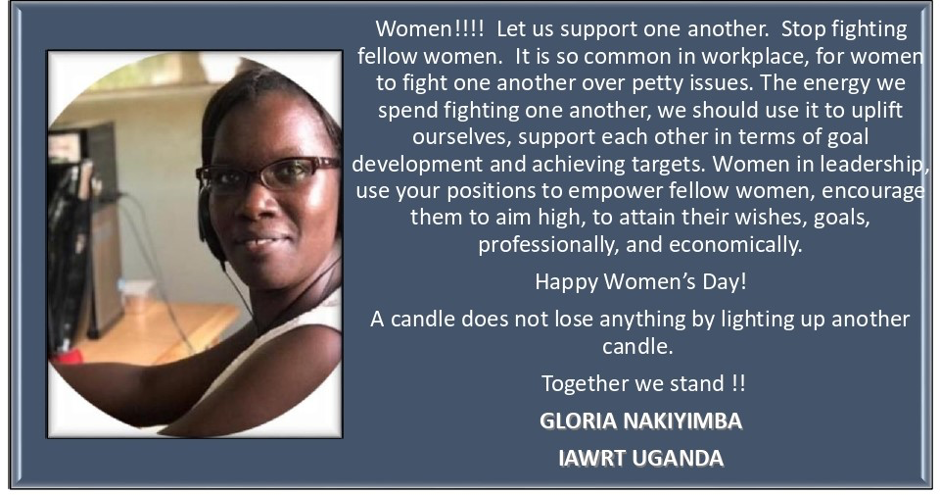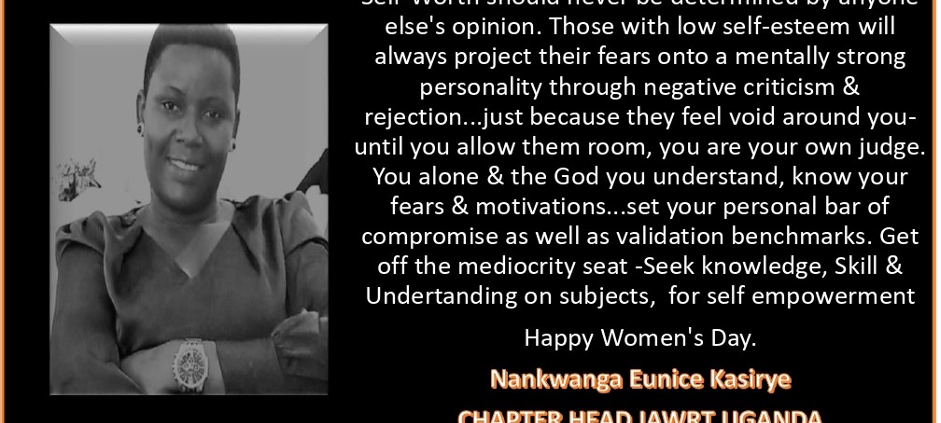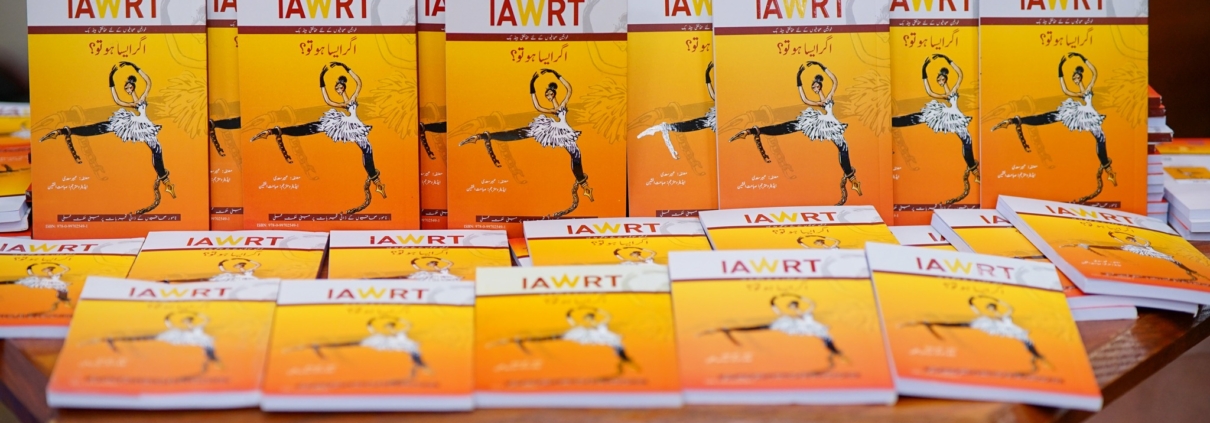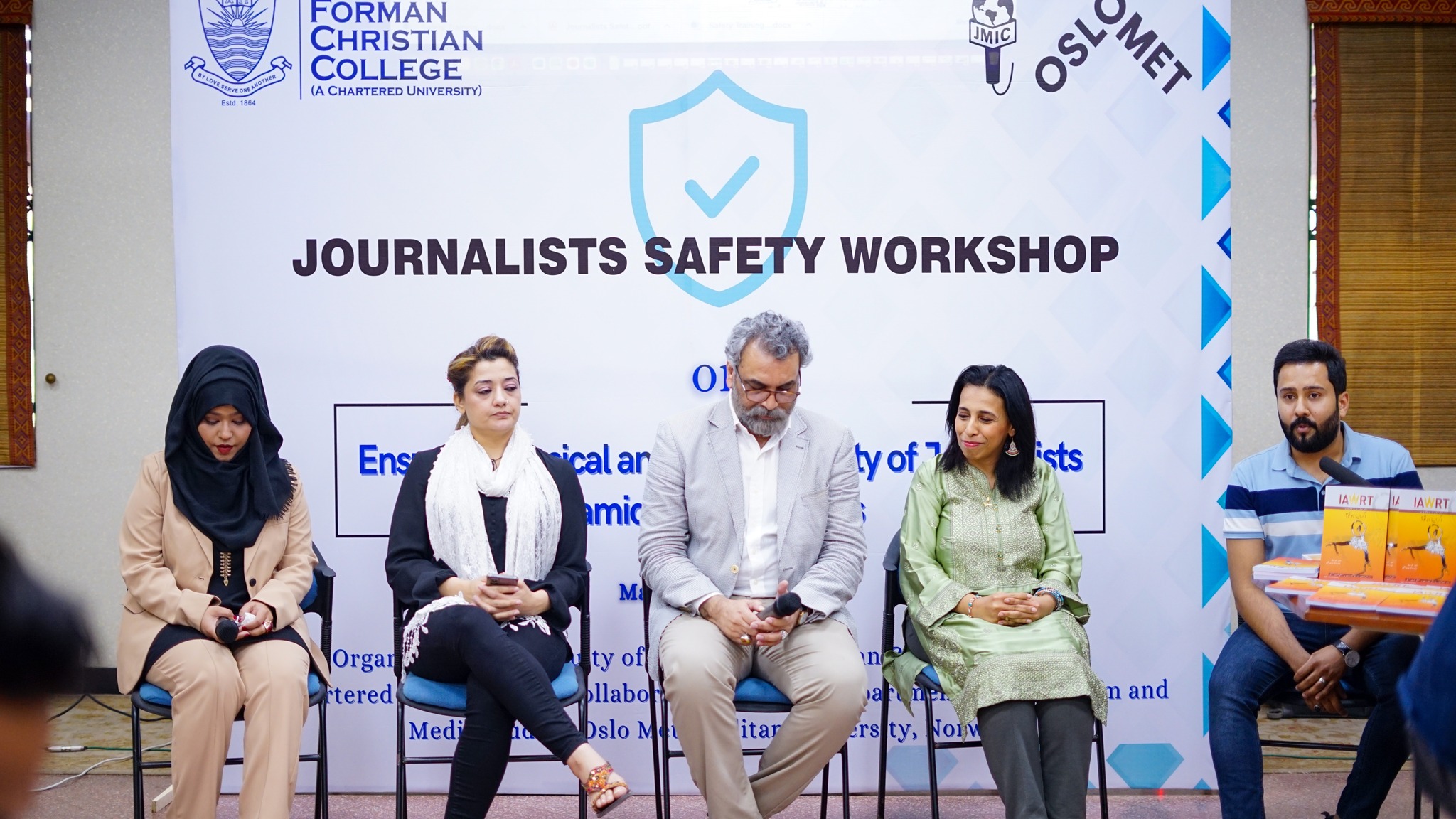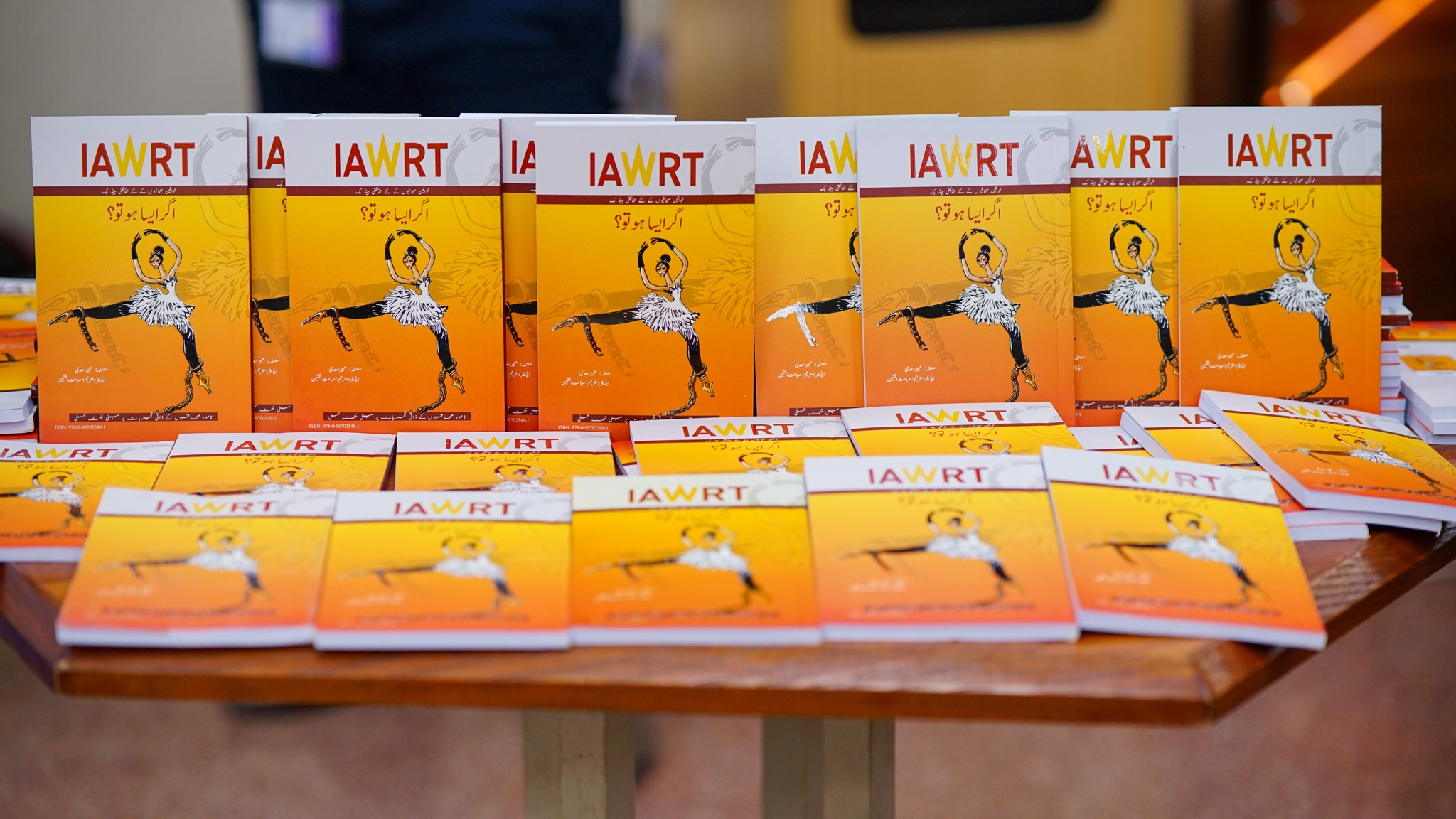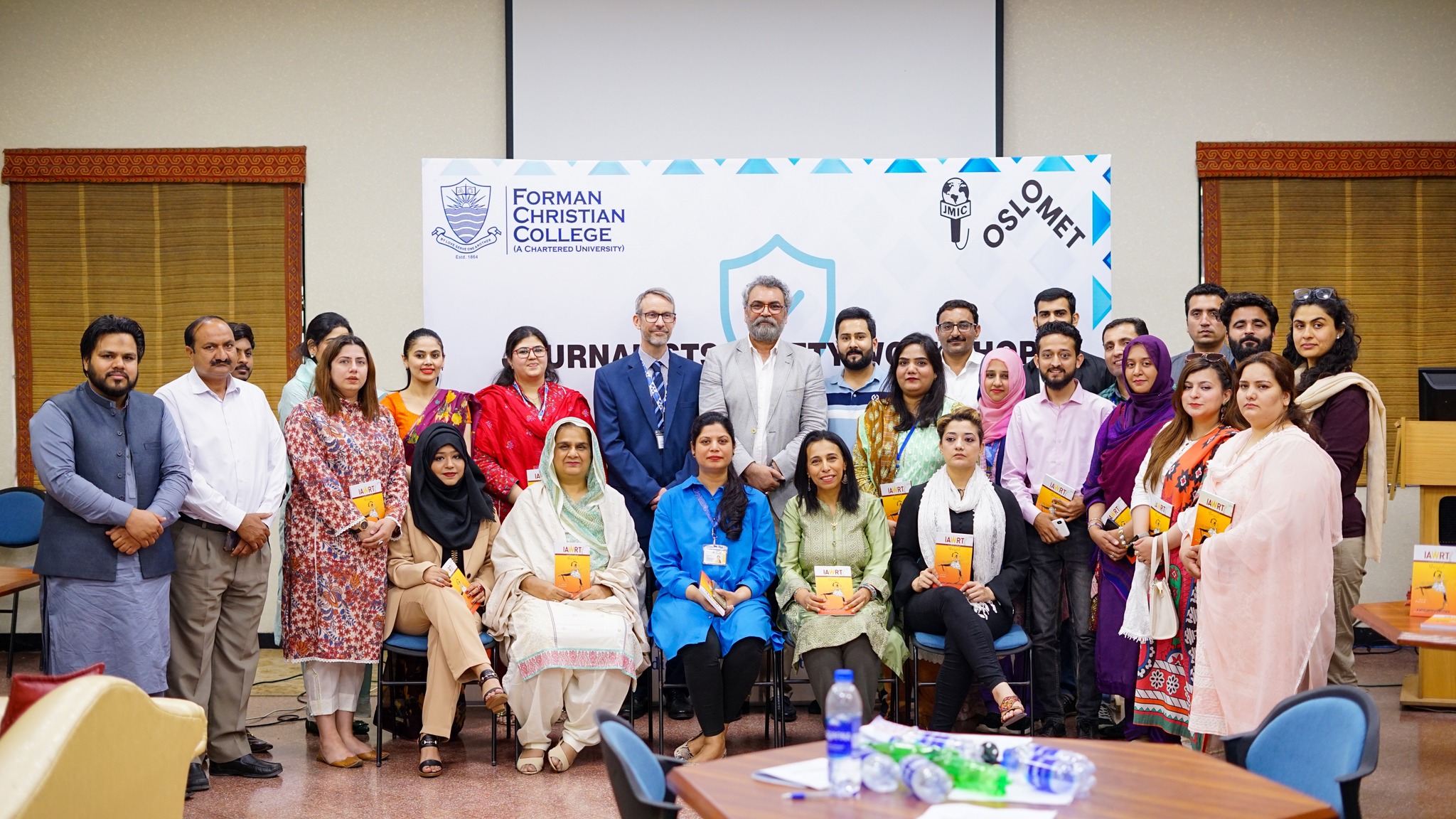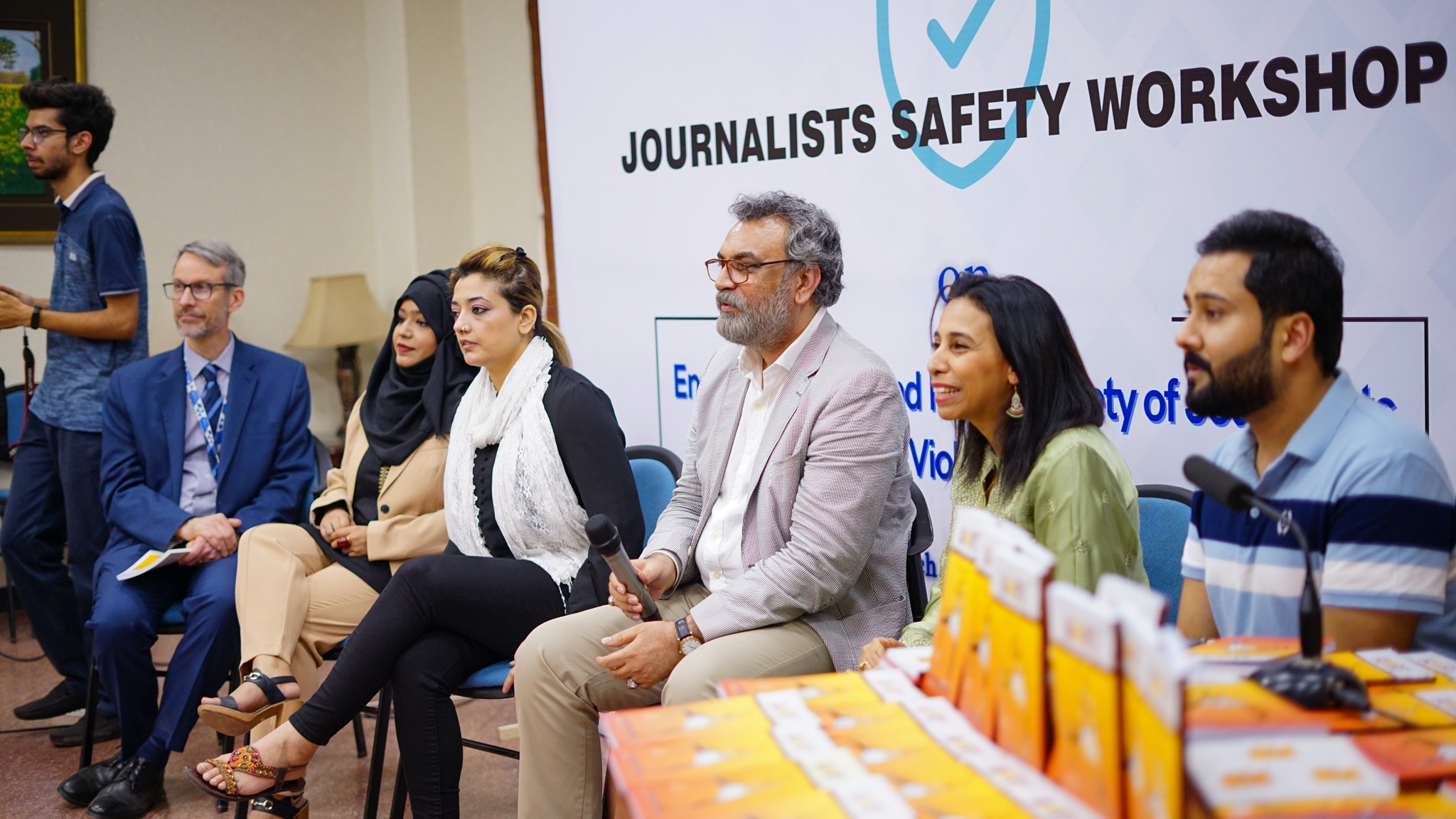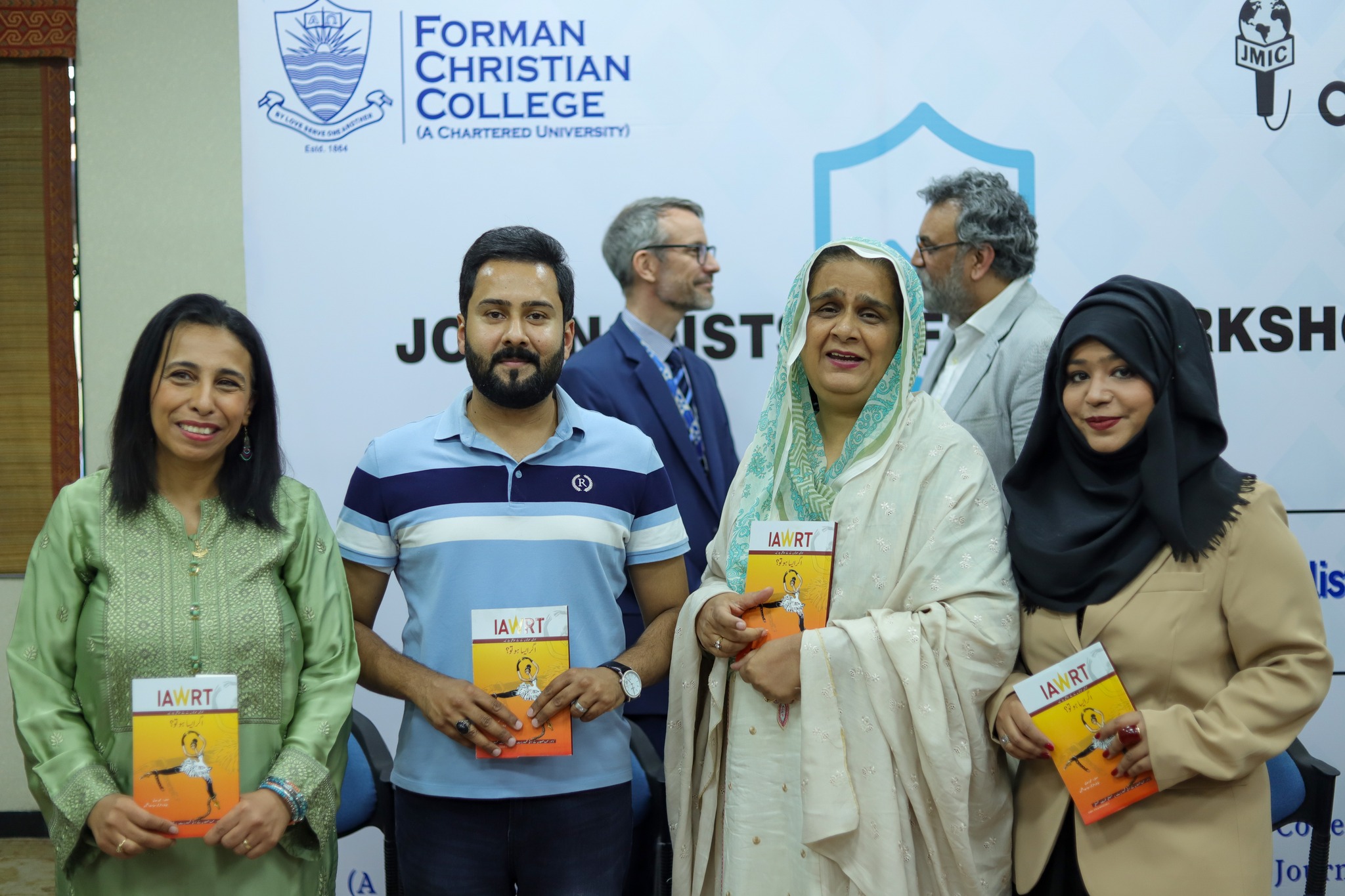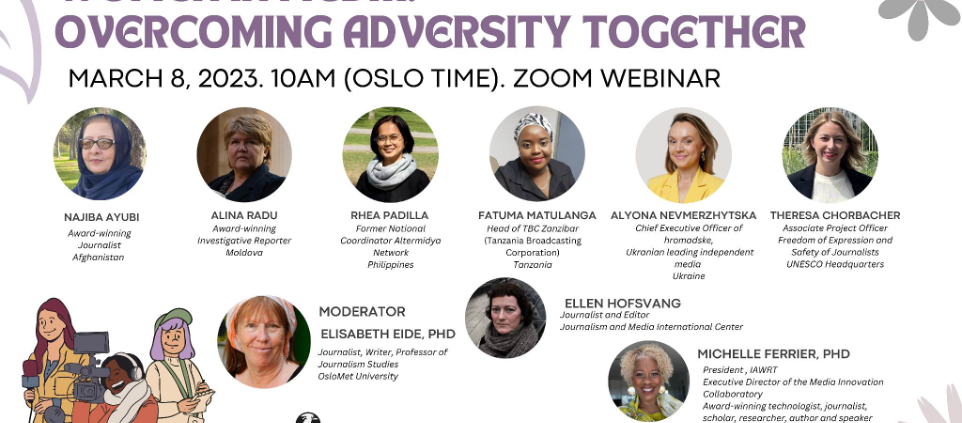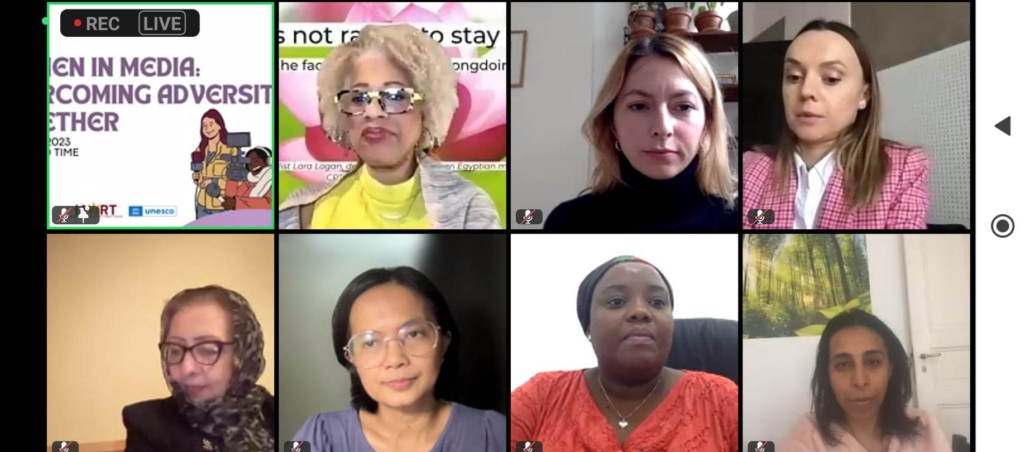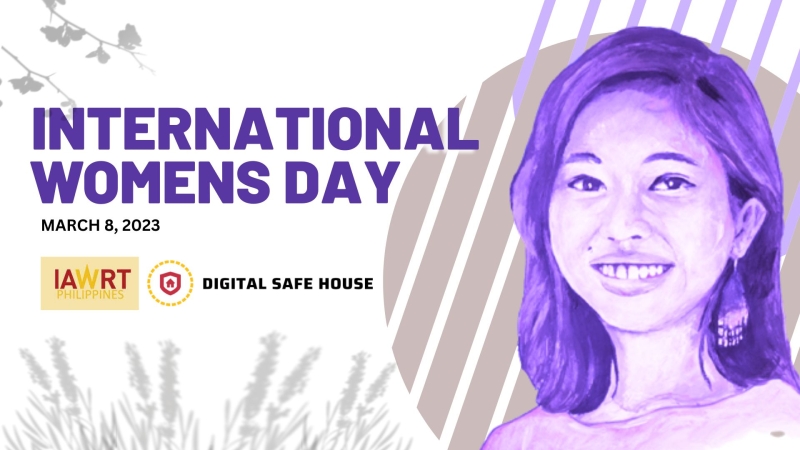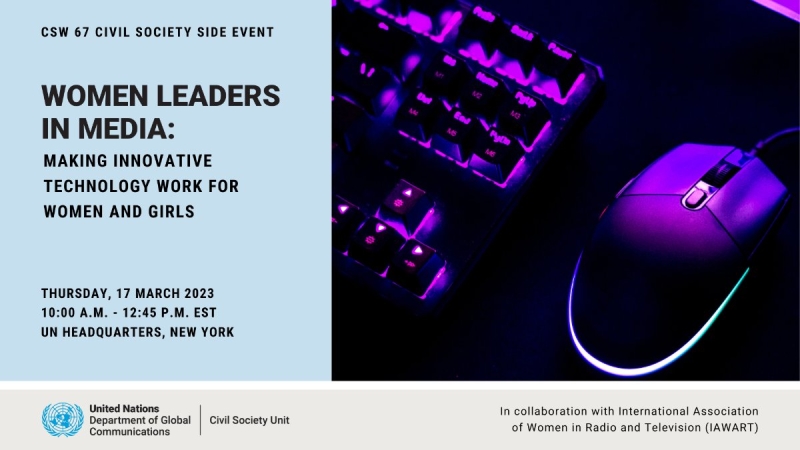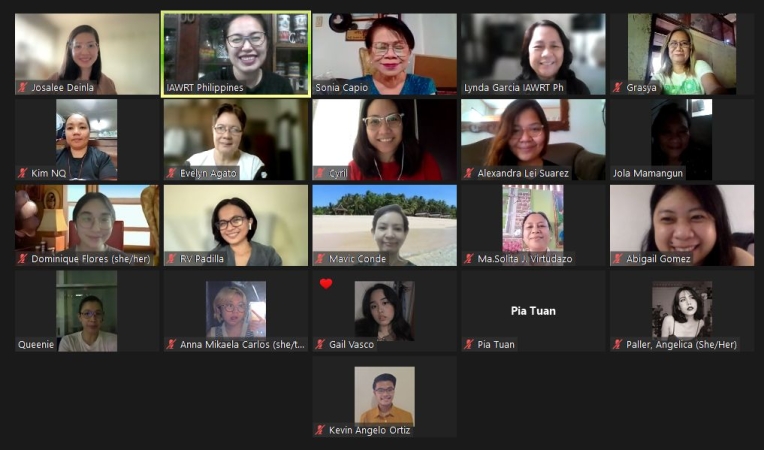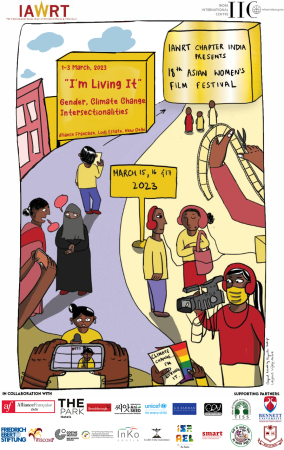By Nankwanga Eunice Kasirye
IAWRT Uganda Chapter, in recognition of International Women’s Day 2023, joined other actors globally to proclaim solidarity with the year’s theme DigitALL: Innovation and Technology for gender equality.
Nankwanga Eunice Kasirye, the IAWRT Uganda Chapter Head, believes that seeking knowledge, skills and knowledge lifts up the women/ girls’ self-esteem which is a strong weapon against any form of abuse especially online harassment. With authority on subjects of discussion as well as digital skills, women have the ability to fully explore the advantages and opportunities that come with the evolving digital world.
She asserts that low self-esteem often brought about by societal structured and normalised abuse of women and girls often limits women’s and girls’ ability to effective and meaningful engagements with digital innovations.
Eunice calls upon fellow women to prioritize self-empowerment through the intentional choice of power surrender through what is allowed to dominate in your mind, brain, eyes and social circles. Because that determines how we take advantage of the opportunities that come with the digital world spaces and beyond.
Rose Namale is the Treasurer IAWRT Uganda Chapter. She calls upon the government of Uganda to take an interest and ensure safety for women is guaranteed online. She says even when it is becoming increasingly impossible to avoid the use of digital spaces and gadgets, women’s safety keeps deteriorating with limited intervention from the government even when there are laws and policies in Uganda to protect users, especially women.
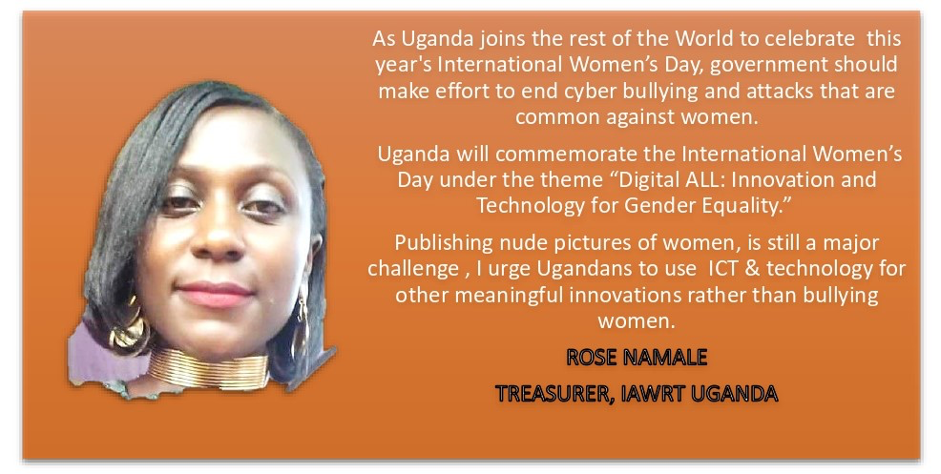
Fleria Nalwanga, a board member of IAWRT Uganda, encourages women to take advantage of their natural limitless abilities to conquer what it is one desire. Women should always be bold and stand up against all barriers and take victory in all spaces because power relies on it.
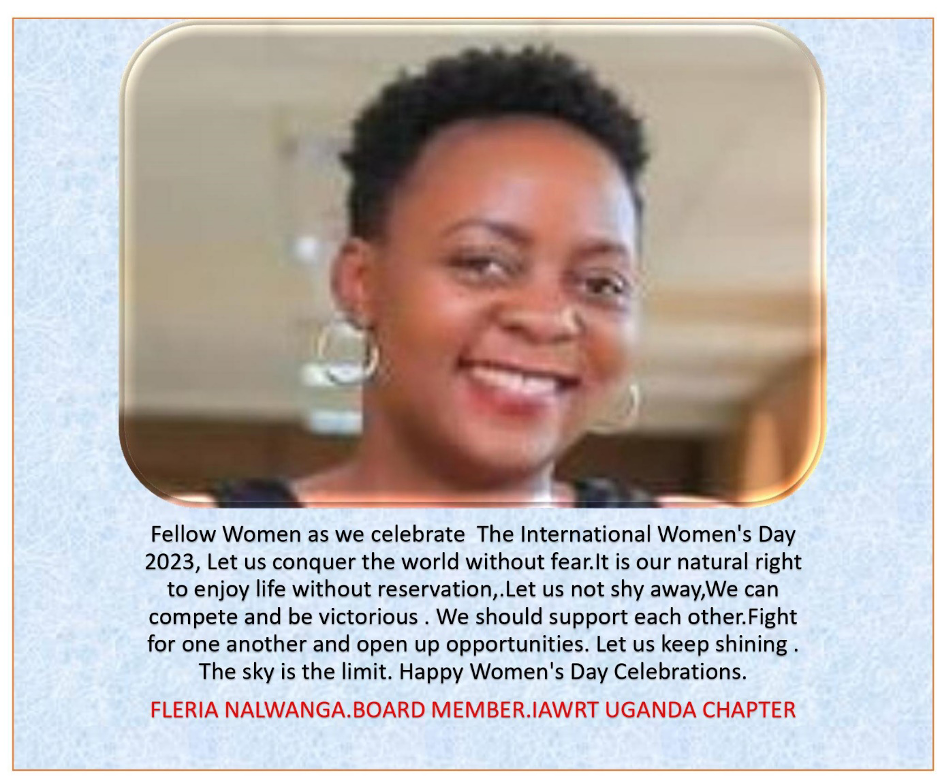
Irene Birungi, a board member of IAWRT Uganda Chapter, amplifies the call for inclusive and transformative technology and digital education as a prerequisite for a sustainable future. She affirms that more women in the technology spaces result in more creative solutions and greater potential for innovations that meet women’s needs and promote gender equality.
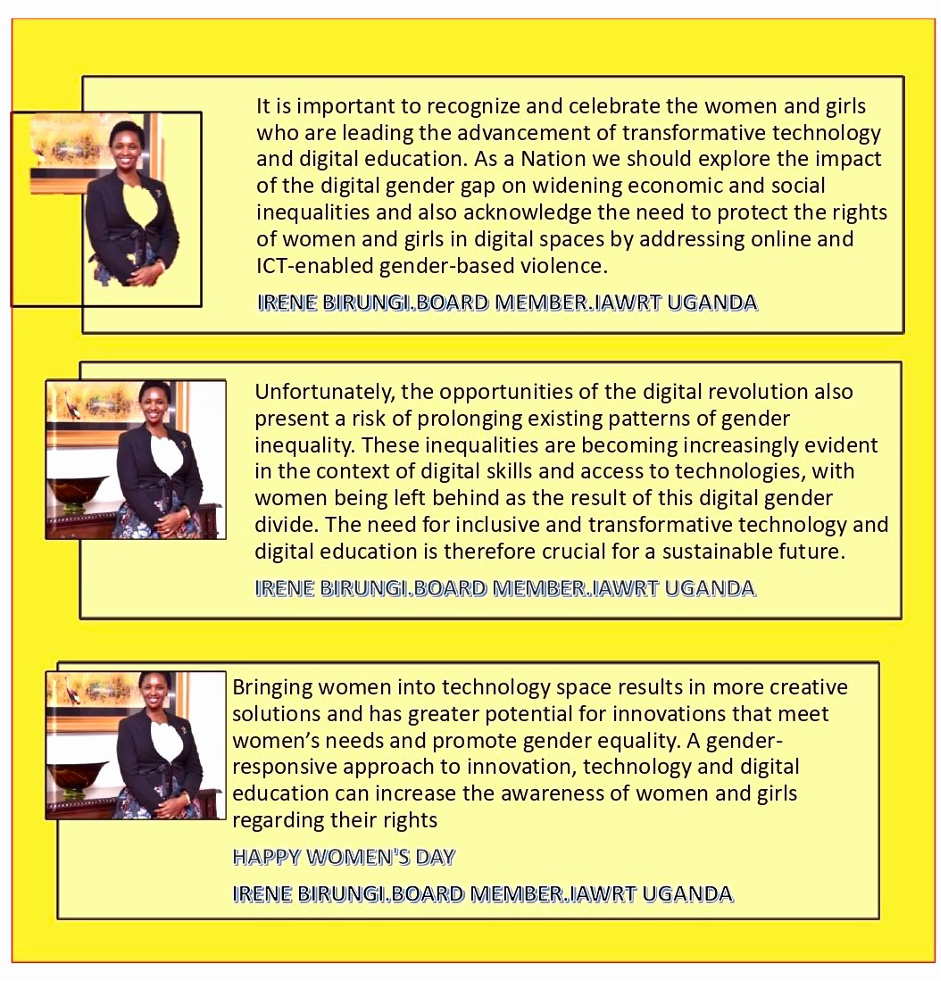
Uhirwa Anita, a member of IAWRT Uganda, asserts that technology and innovation have the power to transform the world where progress benefits everyone. She says working together to ensure that women and girls have equal access to technology, opportunities, and digital education and that the design and development of technology take into account the needs and perspectives of diverse communities is the power within and among women and everyone in their unique capacity.
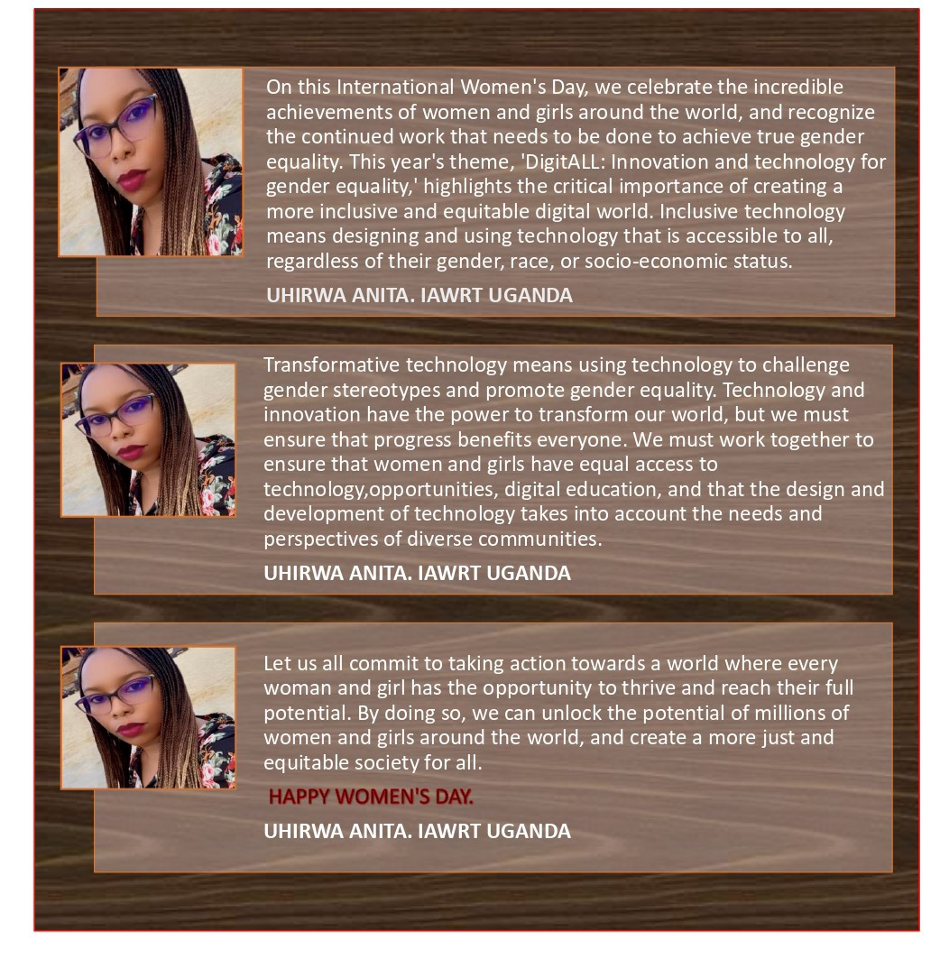
Gloria Nakiyimba, a member of IAWRT Uganda Chapter, she challenges women to support each other to leap over all forms of progress barriers. Nakiyimba encourages women to desist from pulling down fellow women but fix each other’s Crown. A candle does not lose anything by lighting up another candle. Together we stand!!
